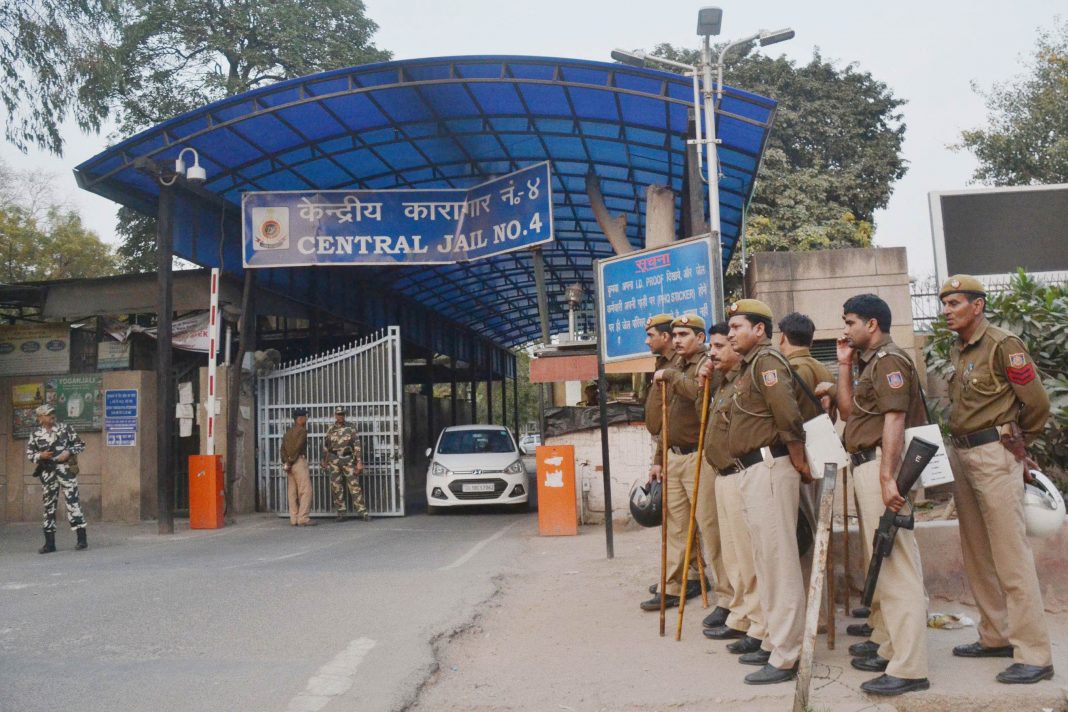The Delhi High Court has asked Tihar Jail authorities to instal TVs in high-security wards to help alleviate depression among the prisoners during Covid times
By Gautam Mishra
Covid-19 has affected the mental health of people like never before, leading to depression, and prisoners are no exception. Keeping this in mind, the Delhi High Court has asked the Tihar Jail authorities to consider installing TVs in high-security wards there.
Studies have shown that depression and mental health issues are more common among prisoners as compared to the general public. A WHO guide called Health in Prisons says: “About nine million people are detained in penal institutions around the world. At least half of these struggle with personality disorders, and one million prisoners or more worldwide suffer from serious mental disorders such as psychosis or depression. Nearly all prisoners experience depressed moods or stress symptoms. Moreover, each year several thousand prisoners take their own lives during imprisonment.”
A bench of the High Court, comprising Chief Justice DN Patel and Justice Prateek Jalan, has asked jail authorities to consider installing TVs in the common area of the high-security wards in Tihar Jail. This followed a petition filed by the Delhi Sikh Gurudwara Management Committee (DSGMC) which sought installation of a TV in these wards. The plea stated that these inmates are in complete isolation and during the pandemic, they were not in contact with anyone, leading to depression. The bench said that the prisoners were “already suffering a lot in Jail, and are not asking for heaven and sky”.
The US Department of Justice, Bureau of Justice Statistics Special Report on “Mental Health Problems of Prison and Jail Inmates” stated: “At mid-year 2005, more than half of all prison and jail inmates had a mental health problem, including 7,05,600 inmates in State prisons, 78,800 in Federal prisons and 4,79,900 in local jails. These estimates represented 56 percent of State prisoners, 45 percent of Federal prisoners, and 64 percent of jail inmates.”
According to the National Crime Records Bureau, “Prison Statistics India 2018” report, 6,623 inmates were reported mentally ill out of a total of 4,66,084 inmates lodged in various jails in the country as on December 31, 2018, accounting for 1.4 percent of total such inmates. While the government provided prisoners with counselling support, trained self-help groups of prisoners and stress management workshops, these were not enough.
According to WHO, the presence of a psychologist, psychiatrist and nurses does not guarantee good mental health. Research by Toch Hans in his book, Living in Prison: The Ecology of Survival, revealed that prisoners needed the following:
- Reliable, tangible assistance from people and services that facilitate self-advancement and self-improvement.
- The need to be loved, appreciated and cared for and a desire for intimate relationships that provide emotional sustenance and empathy.
- The need for activity and distraction.
- The need for safety and environmental stability.
- The need for privacy or autonomy is less important.
Andrew Shepherd from Offender Health Research Network, University of Manchester, noted in his research paper, “Effects of the COVID-19 pandemic on the mental health of prisoners” that, during this time, visits to prisons are temporarily suspended in several countries. Even jail inmates are being restricted from meeting each other. This deteriorates the social support that helps prisoners to cope with mental stress and depression.
Justice Patel said that the request for a TV was a small one and would not affect the budget of the prison. He directed the government, “you can give it in your common area, it can be put on a wall. Seek instructions and come back”.
The matter is now listed for August 21.
Lead image: Tihar Jail, Delhi. Credit: UNI


